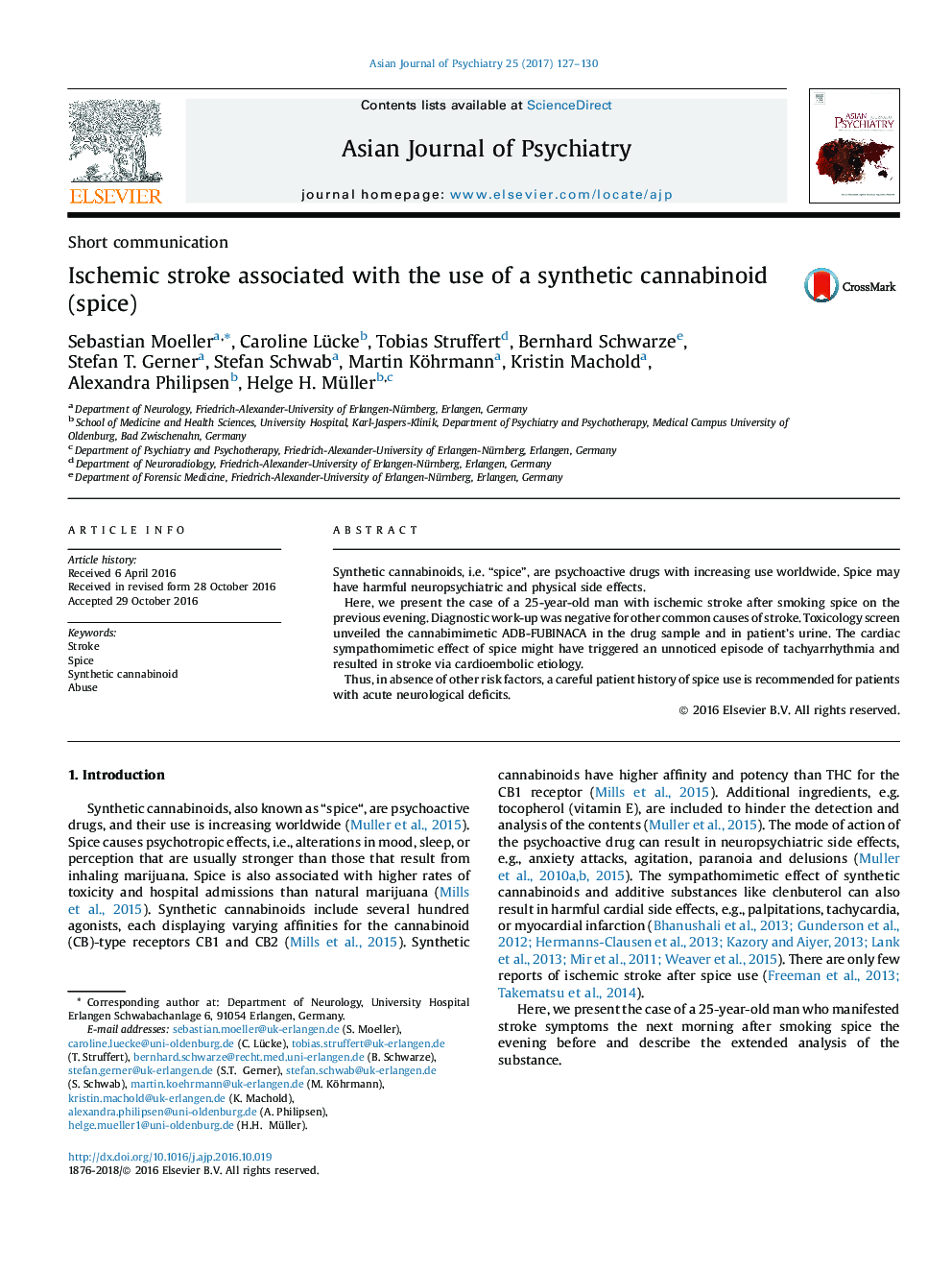| Article ID | Journal | Published Year | Pages | File Type |
|---|---|---|---|---|
| 4929822 | Asian Journal of Psychiatry | 2017 | 4 Pages |
â¢Synthetic cannabinoids (“Spice”) are psychoactive drugs with increasing use worldwide.â¢Spice may have harmful neuropsychiatric and somatic side effects.â¢Spice is knowingly mislabelled as herbal incense, to avoid legal restrictions.â¢Detection of spice, e.g. via urinary drug screening, might be challenging.â¢Patient history of spice use recommended for patients with an acute neurological deficit.
Synthetic cannabinoids, i.e. “spice”, are psychoactive drugs with increasing use worldwide. Spice may have harmful neuropsychiatric and physical side effects.Here, we present the case of a 25-year-old man with ischemic stroke after smoking spice on the previous evening. Diagnostic work-up was negative for other common causes of stroke. Toxicology screen unveiled the cannabimimetic ADB-FUBINACA in the drug sample and in patient's urine. The cardiac sympathomimetic effect of spice might have triggered an unnoticed episode of tachyarrhythmia and resulted in stroke via cardioembolic etiology.Thus, in absence of other risk factors, a careful patient history of spice use is recommended for patients with acute neurological deficits.
